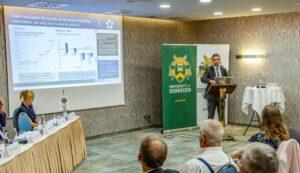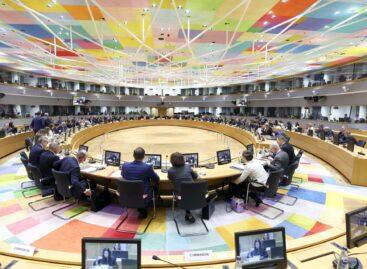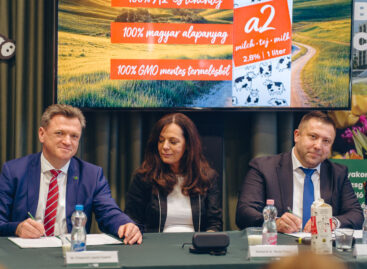The war is a market risk for Hungarian agriculture
The Russian-Ukrainian war and its consequences interrupted the market and production security of agricultural production, which had strengthened in the last decade, moreover, it led to sales uncertainties and an increase in production costs in such a short time that it is difficult to adapt to it in the short term, said Zsolt Feldman.

(Photo: AM/Tibor Vermes)
The Secretary of State responsible for agriculture and rural development of the Ministry of Agriculture spoke about the main risks and their management that an agricultural producer has to deal with at the conference held at the Summer University of the North-Balaton Civic Club and the University of Debrecen entitled “Economy and security, the challenges of rural development and answers 2023” for efficiency. Among the production, market and financial risks, he mentioned the climatic environment becoming more extreme, the intense change in production costs, the evolution of the costs of credit financing, the tens of millions of tons of agricultural products arriving in the EU due to the duty-free nature of Ukrainian products, or the increasing labor shortage in the sector. He also identified the changing of EU regulations, which are constantly tightening production conditions, often without professional justification, or the decrease in EU food demand as risk factors from the point of view of Hungarian agriculture.
Several types of support are a safety net for farmers
Zsolt Feldman also said that the most important, but far from the only and exclusive tool for managing these processes is the agricultural support system planned until 2027 in the Strategic Plan of the Common Agricultural Policy. Of course, this does not change the market fundamentals, purchase or consumer prices, but the area- and animal-based subsidies help as a kind of safety net in the financial balancing of farming even in times of significant large fluctuations in price and cost levels. He emphasized the role of agricultural resources, through which the government can provide support for the automation of agricultural production and food production to partially remedy the labor shortage. He emphasized the results of the government programs devoted to the development of the infrastructure and service background of small rural settlements, since small settlements that are livable in addition to operating businesses are needed, and which are able to retain the local workforce for agricultural enterprises.
Much attention must be paid to agricultural production
The state secretary drew attention to the fact that, in order to preserve our farms and preserve the security of food supply from domestic sources, great importance must be placed on managing the growing risks of agricultural production both at the farmer and national level. This cannot be effective without economic adaptation. For example, either by applying farming practices that help the soil retain water, or by participating in the constructions available for the subsequent financial mitigation of damage that has already occurred, but not without risk management tools operating at the national level, such as the damage mitigation fund, the insurance premium subsidy or the ice damage mitigation system. Work is currently underway to prepare for innovations in this tool system based on the analysis of the practices of other EU member states and the Hungarian experience, Zsolt Feldman said.
AM
Related news
Not a turnaround, but consolidation: an agricultural outlook for 2026
🎧 Hallgasd a cikket: Lejátszás Szünet Folytatás Leállítás Nyelv: Auto…
Read more >The guarantee of support for farmers is the preservation of an independent, autonomous agricultural policy
🎧 Hallgasd a cikket: Lejátszás Szünet Folytatás Leállítás Nyelv: Auto…
Read more >Related news
Levente Balogh announces a revolution in the quality dairy products market
🎧 Hallgasd a cikket: Lejátszás Szünet Folytatás Leállítás Nyelv: Auto…
Read more >Lamb Days – Gastronomic Adventure is coming again on March 28–29!
🎧 Hallgasd a cikket: Lejátszás Szünet Folytatás Leállítás Nyelv: Auto…
Read more >







